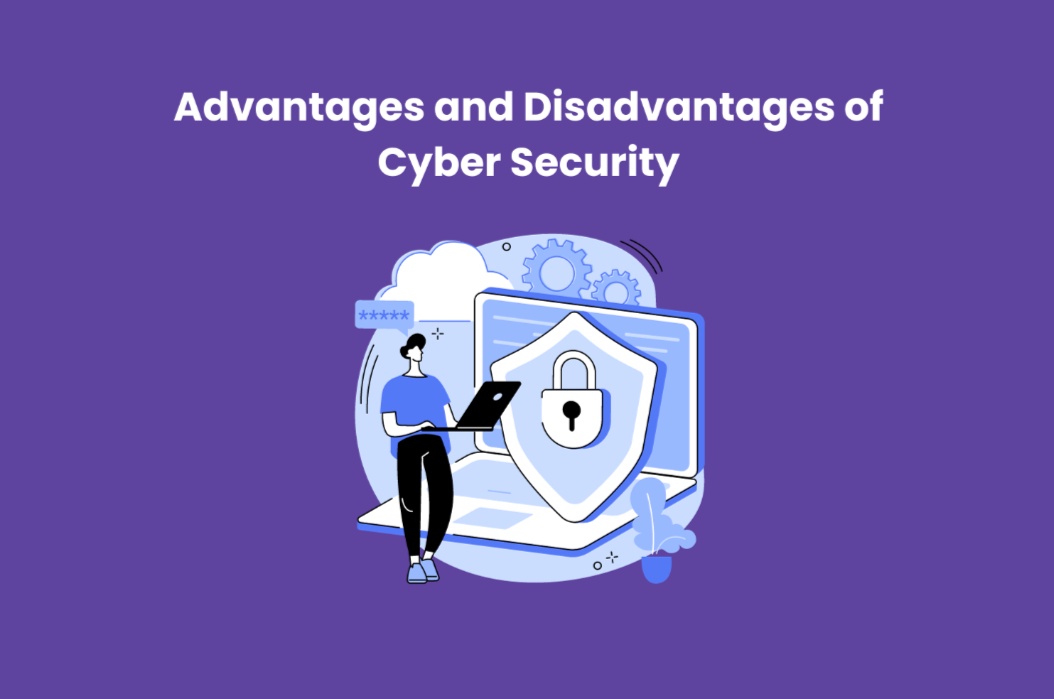In a highly interconnected world, where the digital world plays an increasingly critical role in our daily lives, the concept of cyber security is of paramount importance. As more and more people use the ever-expanding internet, both individuals and organizations must safeguard their digital assets from the constant threats lurking in cyberspace. In this blog, we will delve into the advantages and disadvantages of cyber security, exploring the dual nature of this crucial defense mechanism.
Advantages of Cyber Security
Here are some advantages of cyber security:
Protection against Data Breaches
Cyber security measures are your first line of defense against data breaches. They help protect sensitive information, such as personal details, financial data, and trade secrets, from falling into the wrong hands.
Safeguarding Privacy
As we store more personal information online, from emails to social media accounts, cyber security ensures that our privacy remains intact. By preventing unauthorized access, cyber security helps us maintain control over our digital lives.
Preventing Malware Attacks
Cyber security tools are equipped to detect and eliminate malware, such as viruses, ransomware, and spyware. This reduces the risk of infection and data loss.
Business Continuity
For organizations, cyber security is vital for ensuring uninterrupted operations. By safeguarding critical systems and data, businesses can continue to serve their customers, even in the face of cyber threats.
Protection from Financial Loss
Cyber security can mitigate the financial consequences of a cyber attack. By preventing breaches and data loss, it avoids potential financial repercussions, such as fines, lawsuits, and reputational damage.
Enhancing Trust
Robust cyber security measures can foster trust among customers and partners. Knowing that their data is safe with you can enhance your reputation and help you gain a competitive edge.
Compliance with Regulations
Many industries and regions have stringent data protection regulations. Effective cyber security ensures that your organization remains compliant with these laws, avoiding legal penalties.
Real-Time Monitoring
Cyber security tools often include real-time monitoring and threat detection, allowing for immediate responses to emerging threats.
Disadvantages of Cyber Security
Even though cyber security is really important and it has advantages, it also has some of the downsides that needs to be addressed.
Cost
Implementing and maintaining a strong cyber security infrastructure can be expensive. This includes the cost of software, hardware, and skilled personnel to manage it. For small businesses and individuals, these costs can be prohibitive.
Complexity
Cyber security systems are highly complex, and their management requires a deep understanding of the threat landscape and constantly evolving best practices. This complexity can be overwhelming for those without expertise.
User-Friendliness
Some cyber security measures, such as multi-factor authentication, can create usability issues. Users may find these additional security steps cumbersome and frustrating.
False Positives
Cyber security tools are not infallible and may generate false positives. These are warnings about threats that aren't real, which can lead to unnecessary disruptions and confusion.
Resource Intensiveness
Scanning for threats and managing security measures can consume system resources. This may slow down systems, particularly on older or less powerful hardware.
Limitations of Predictive Analysis
While predictive analysis is an essential part of cyber security, it is not foolproof. New and unpredictable threats may emerge, and cyber security tools may not detect them until after they've struck.
Human Error
Even the most sophisticated cyber security systems can be compromised by human error. For example, employees may inadvertently click on malicious links or use weak passwords, undermining the best defenses.
Over-Reliance on Technology
Relying solely on cyber security tools can create a false sense of security. No system can provide absolute protection, and a multi-layered approach, including employee training, is necessary.
Conclusion
The advantages and disadvantages of cyber security are intertwined in the complex tapestry of the digital age. While it is undeniable that cyber security is essential for safeguarding our data, privacy, and critical infrastructure, it comes with its own set of challenges. The key is to strike a balance between robust cyber security measures and the practicalities of cost, usability, and human behavior.
In an increasingly connected world, where cyber threats continue to evolve, being aware of the advantages and disadvantages of cyber security is crucial. By understanding the complexities and trade-offs, individuals and organizations can make informed decisions on how to protect themselves effectively in the digital realm. Cyber security is not a one-size-fits-all solution; it is an ongoing, adaptive effort that requires continuous learning and adaptation to stay ahead of the ever-evolving threats in the world of cyberspace.


No comments yet